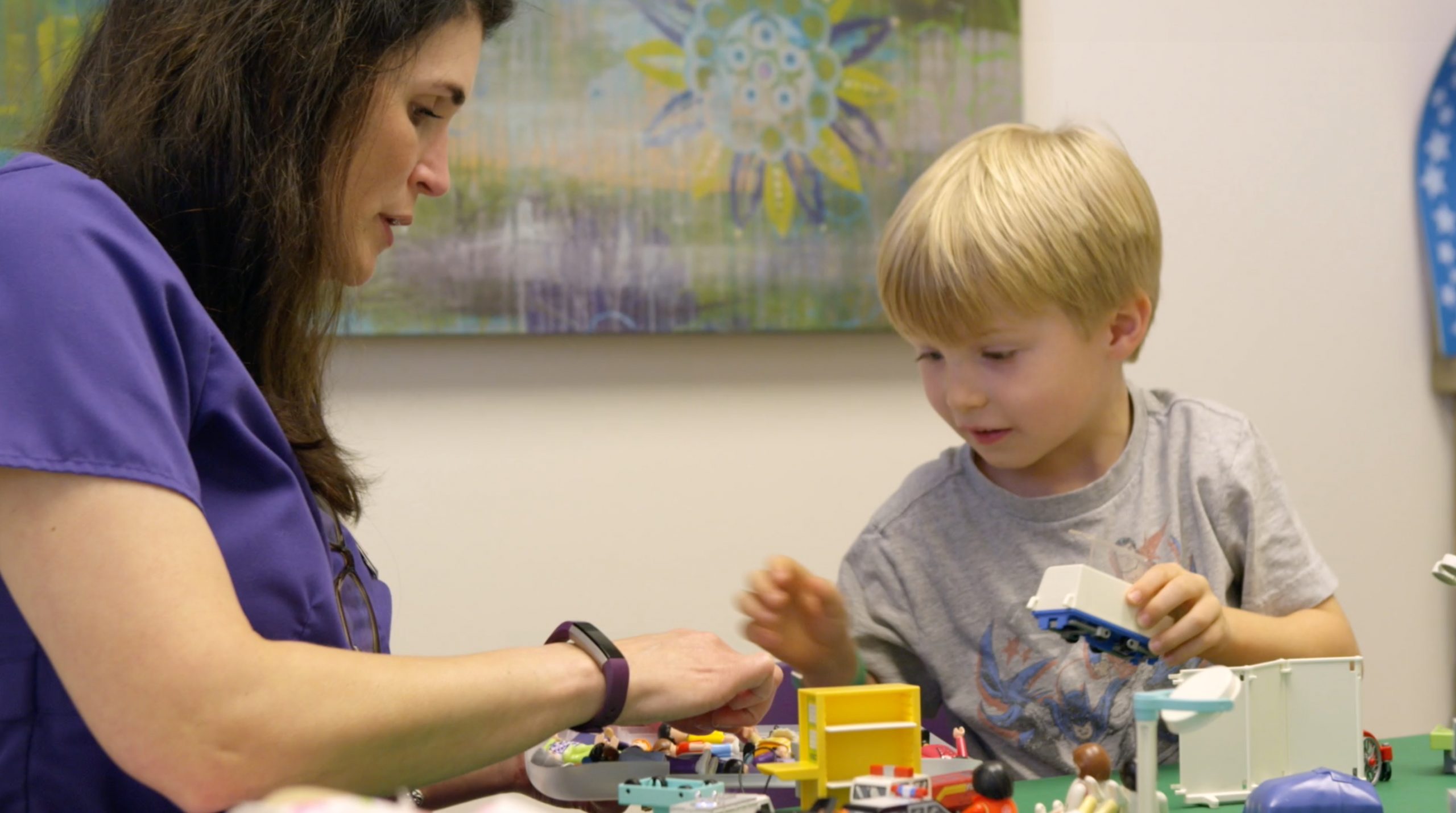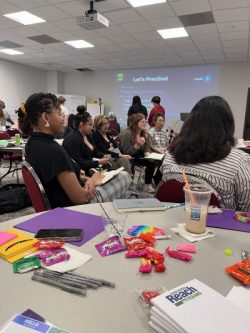
Moody Grant Recipient: Baylor Health Care System Foundation
Tell us about the relationship between Baylor Health Care System Foundation and the Moody Foundation.
The Moody Foundation has supported several Baylor Scott & White initiatives over the last five years including construction of a Hope Lodge in collaboration with the American Cancer Society and the construction of a facility to train assistance dogs in collaboration with Canine Companions for Independence. Moody Foundation’s most recent grant is funding the expansion of our Child Life Program to new hospitals in Central and North Texas.
What are you using the funds for? Why is that significant?
The grant from the Moody Foundation is supporting our Child Life Program which spans our entire health care system and helps children of our seriously ill and terminally ill patients in Temple, Waco, Ft. Worth, Grapevine, Irving and Dallas. This is significant because it impacts families throughout Central and North Texas and helps them at a point of crisis that can be a turning point for some children. According to the Centers for Disease Control and Prevention, adverse childhood experiences can have long-lasting impacts on a child’s future health and well-being. And the serious, life-altering illness of a parent or other loved can be a traumatic event. The CDC has linked adverse childhood experiences to: risky health behaviors, chronic health conditions, low life potential and early death. Experts believe that child life services can lessen both short and long-term negative effects by helping children process these early feelings of fear or anxiety and develop healthy coping strategies.
Can you tell us more about your program placing child life specialists in adult-care hospitals?
Traditionally, Child Life Specialists have operated exclusively in pediatric hospitals to help ill or injured children process their own conditions. The need for this type of program in an adult hospital was identified by a palliative care physician at Baylor Scott & White who found himself in the position of delivering bad news to the young children of a terminally ill patient, and he realized the family needed much more emotional support than he could provide.
Under his leadership, BSWH launched the Child Life Program at Baylor University Medical Center in Dallas in 2011, and became one of the first health care systems in the country to provide these services – free of charge – to children of patients at adult hospitals. Since then, it has grown into a vital component of Baylor Scott & White Health’s System-wide Supportive and Palliative Care Team, serving approximately 4,000 children annually.
Thanks to the support from the Moody Foundation, this nationally-recognized program will be expanded to serve additional children and families at BSWH facilities across Texas.
What benefits have you seen from this program on families battling illnesses?
Adults with serious illnesses have major concerns about the impact of their illness on the children in their lives and the challenges of being a good parent given their circumstances. Most adult patients and, for that matter, most adult health care professionals lack the knowledge or training to help these children in a manner appropriate for their developmental age. Yet few ill adult patients have access to professionals, such as child life specialists, who can provide specialized support and guidance to assist patients as they parent through their medical journey.
Child life specialists understand that a child’s well-being depends on the support of the family. They provide information, support and guidance to parents, grandparents, and other closely-involved family members as well. Child life specialists promote effective coping through play, preparation, education, bibliotherapy (use of books in therapy) and self-expression activities. They also play a vital role in educating medical providers, administrators, and the public about the needs of children under stress. In some cases, Child Life Specialists continue to help children and families for months, or even years, as the illness progresses in adult patients. In some cases, they simply prepare children for a funeral. In many situations, Child Life Specialists refer children and families to resources in the community after the ill adult has passed away or is no longer hospitalized.
The many letters and testimonials we get from families who have benefited from this service are both heartbreaking and uplifting. Medical professionals know that families and children who end up in hospital waiting rooms are often enduring unimaginable trauma. If not for Child Life Specialists in adult hospitals, children like these may not get the intervention they need from knowledgeable professionals who are there at the right place, and at the right time, to help them.
How do you hope Baylor Scott & White and its programs will grow in the next several years?
As these programs are introduced into hospitals, referrals from physicians, medical care providers, social workers and chaplains quickly outpace the availability of this service. We aim to be able to eventually be able to provide this service in every one of Baylor Scott & White’s 50+ hospitals throughout Texas, and we are hoping to provide enough Child Life Specialists in each location to meet the demand.




